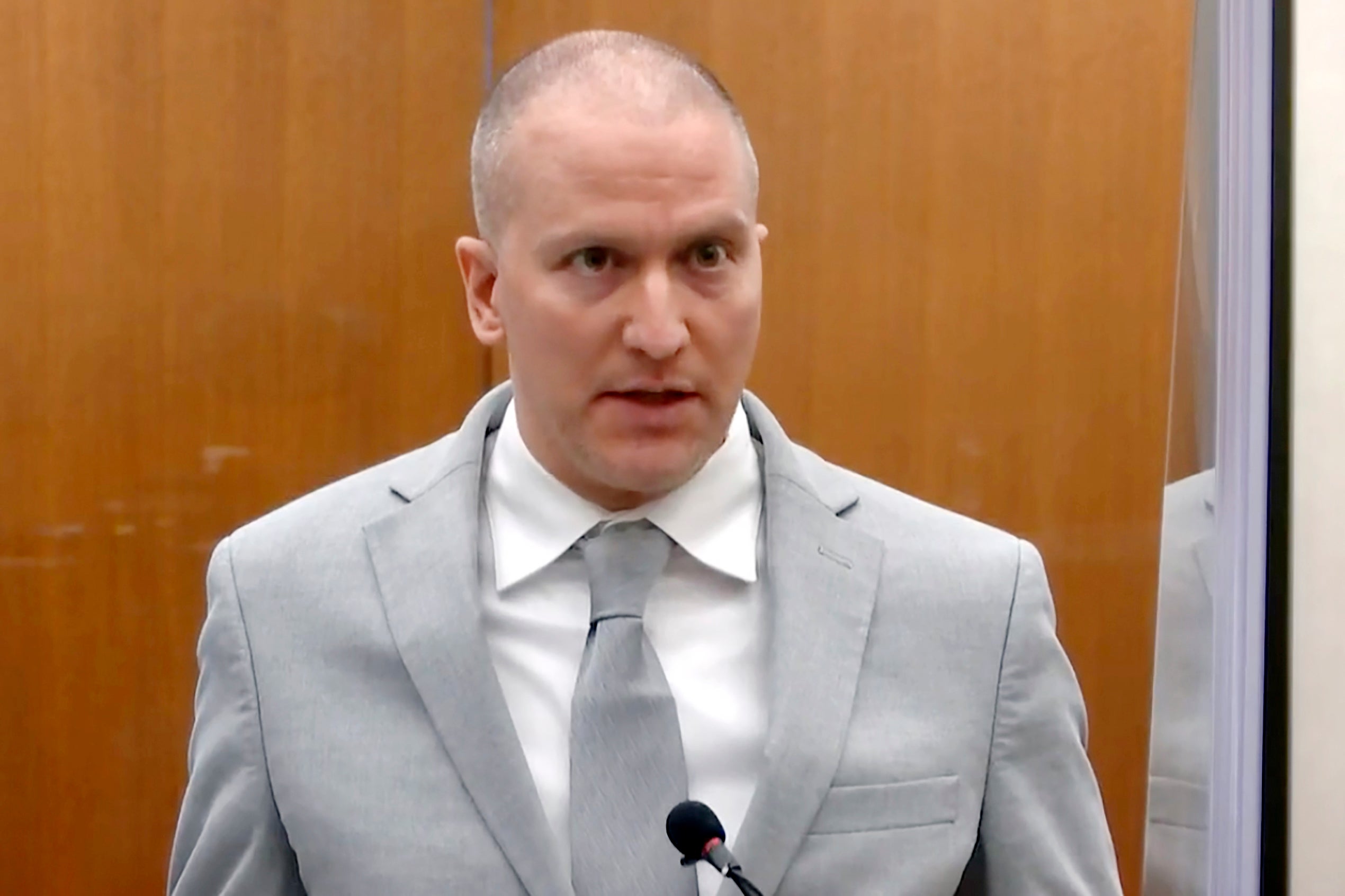Derek Chauvin: Former police officer who murdered George Floyd appeals conviction
The former Minneapolis police officer has claimed there were issues with the jury and judge throughout his trial

Derek Chauvin has filed an intent to appeal with the Minnesota state appellate court over his murder conviction for the death of George Floyd.
In June, the former police officer was jailed for more than 22 years after a jury found him guilty of unintentional second-degree murder, third-degree murder and second-degree manslaughter, in a case that focused the world’s attention on police brutality against Black people.
Although the expected punishment for his crimes would have been a 12.5-year sentence, Judge Peter Cahill agreed with prosecutors that there were aggravating factors in Mr Floyd’s death and increased the sentence.
In May 2020, Chauvin was caught on camera, kneeling on Mr Floyd’s neck for more than eight minutes, while Mr Floyd was handcuffed, lying face down on the ground. The video sparked international outrage and a worldwide anti-racism protest movement.
In court documents filed on Thursday, Chauvin raised 14 issues about his prosecution that he believed supported his request for an appeal, including the court’s denial of his request for a change of venue, which was made based on the level of pre-trial publicity in Minneapolis.
Among his complaints, Chauvin lists an abuse of judicial discretion, whereby Judge Cahill denied his requests to sequester the jury during the trial. He claims that the judge also denied him a new trial over what he ascribed to be juror misconduct, and did not allow him to strike jurors whom he claimed were “clearly biased” from serving on the jury.
Chauvin also took issue with the addition of the third-degree murder charge during the trial, as well as the court’s alleged failure to make an official record of numerous sidebars throughout the trial.
The disgraced police officer separately filed a motion to temporarily pause the appeals process until Minnesota’s Supreme Court reviews an earlier decision to deny him representation by a public defender in his appeal.
In an affidavit, Chauvin claimed that he had neither an attorney to represent him in the process, nor the money to pay for one. He said that he had no income beyond nominal prison wages. He added that the Minneapolis Peace and Police Officers had paid for legal representation during his trial, but had ceased doing so following his conviction and sentencing.
All the issues that Chauvin raised in his court filings had been raised previously by his former defense attorney, Eric Nelson.
Mr Nelson had argued that the intense publicity around Mr Floyd’s death had tainted the jury pool and called for the trial to be moved outside of Minneapolis.
He also previously accused one of the jurors at Chauvin’s trial of misconduct, for failing to mention participation in a 2020 march honouring Martin Luther King Jr during jury selection. Prosecutors countered that the juror had been candid about their views in a jury questionnaire and during juror questioning, and ultimately, the judge ruled that there was no evidence of juror misconduct.
With additional reporting from Reuters and AP
